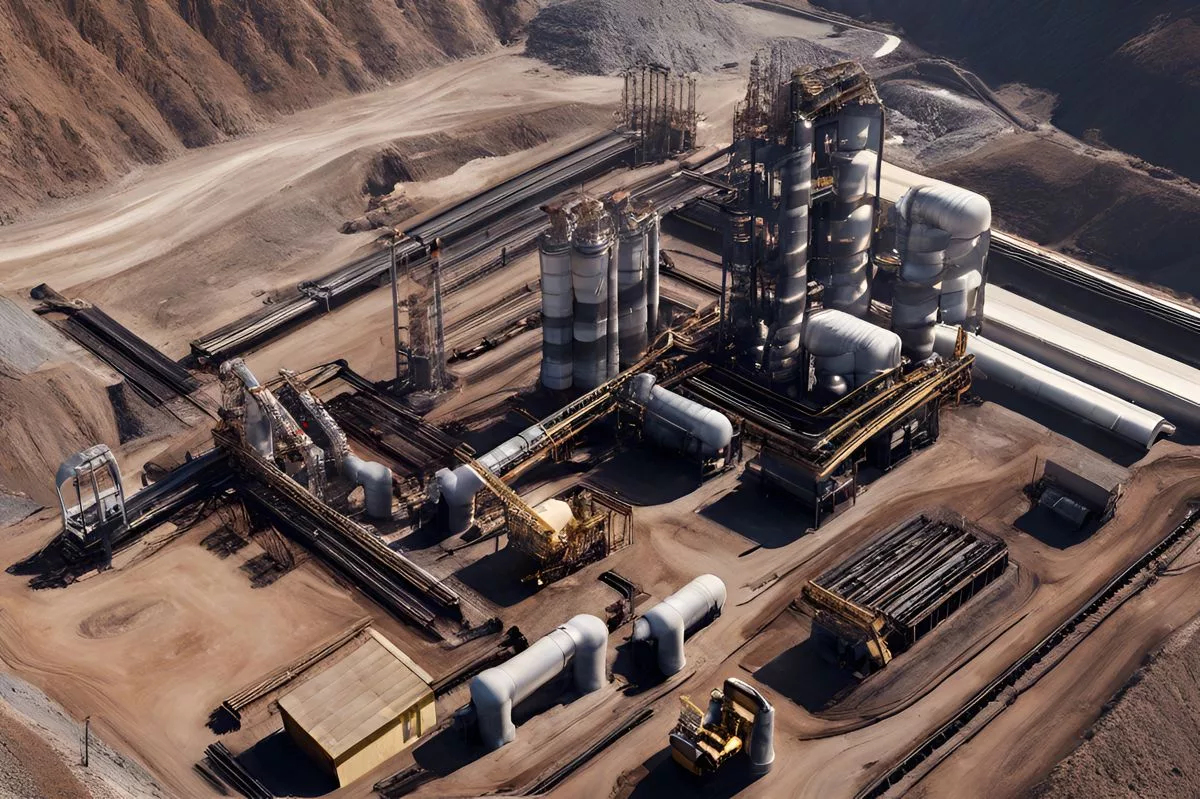Gwede Mantashe, the Minister of Mineral Resources and Energy in South Africa, has played a crucial role in transforming the mining industry and achieving a fairer system of ownership, management, and acquisition. He highlights the government’s initiatives to cultivate a strong and inclusive mining sector and sustainable energy solutions. Mantashe emphasizes the enduring impact of apartheid and acknowledges the challenges that still exist, but his unwavering commitment to equitable development and honest engagement reinforces his vision of a united, prosperous South Africa.
Recognizing the Impact of Gwede Mantashe on South Africa’s Transformation
Gwede Mantashe, the Minister of Mineral Resources and Energy, has played a significant role in transforming South Africa’s mining industry. He emphasizes the enduring impacts of apartheid and justifiably emphasizes the transformative progress made in the mining industry towards a fairer system of ownership, management, and acquisition. Mantashe also highlights the government’s initiatives to cultivate a strong, diversified, and inclusive mining sector and its dedication to sustainable energy solutions.
The Devotion and Dedication of Mantashe
When we pause to contemplate the current state of our nation, it’s impossible to overlook the profound impact and unremitting efforts of Gwede Mantashe, the esteemed Minister of Mineral Resources and Energy. His discerning comments during the State of the Nation Address debate on February 13, 2024, portray a man firmly dedicated to overhauling South Africa’s economic sectors, with a special focus on the mining industry.
Mantashe demonstrates an unwavering resolve for truth through his candid and forthright position on a variety of issues, including the lasting legacy of apartheid. He emphasizes the enduring impacts of apartheid—a malignant system so firmly rooted that even its designer, Hendrik Verwoerd, viewed it as unshakable. This serves as a warning to those who seek to underestimate or deny the system’s significance. It’s a vivid reminder that present-day South Africa continues to wrestle with the aftermath of a regime that dominated for 46 extensive years during a 342-year colonial era.
Transformative Achievements and Progressive Changes
Mantashe’s vigorous defense of the government’s accomplishments post-apartheid provides a necessary counter-narrative to critics who overlook South Africa’s current challenges’ historical backdrop. He justifiably emphasizes the transformative progress made in the mining industry, previously an apartheid stronghold, towards a fairer system of ownership, management, and acquisition. The Mineral and Petroleum Resources Development Act (MPRDA) of 2002 and the Mining Charter of 2004 are concrete examples of this pledge to inclusion.
In retaliation to doubters questioning the government’s strides towards transforming the mining sector, Mantashe provided convincing evidence. He pointed to a study that nine major mining firms had substantially enhanced representation of black managers across all management tiers. Additionally, he highlighted the rise of black ownership in the sector, specifically spotlighting the accomplishments of black-owned mining firms such as Seriti, Thungela, and Exxaro in the coal industry.
On a broader perspective, Mantashe discussed the government’s initiatives to cultivate a strong, diversified, and inclusive mining sector. The creation of South Africa’s exploration fund, designed to expedite the discovery of new minerals, is a component of a wider strategy to empower junior miners and enable their more active participation in the country’s rich mineral resources.
Sustainable Energy Solutions and Challenges Ahead
Mantashe further emphasized the government’s dedication to sustainable energy solutions, underscoring the notable progress made since the Independent Power Producer Procurement Programme’s initiation in 2011. With a total acquisition of 13,266.9 MW from 140 IPPs, the programme signifies a considerable advancement towards energy autonomy and sustainability.
However, obstacles remain. Mantashe was adamant that the battle against illicit mining, a criminal action that subverts economic growth and jeopardizes community safety, remains a key concern. He also detailed the Department of Mineral Resources and Energy’s ongoing initiatives to seal abandoned and ownerless mines, with 251 such locations already closed and sealed since 2019.
Vision of a Societal Transformation
Mantashe’s concept of progress also incorporates broader societal transformation. He acknowledged the significant advancements made in broadening electricity access, noting that since 2019, 777,776 households have been connected to the grid, increasing overall electricity accessibility to over 92%. This is a remarkable rise from the 34% recorded in 1994.
Concluding, Mantashe’s powerful tale of resilience, metamorphosis, and progression serves as a strong reminder of the strides South Africa has made since transitioning to democracy. His unwavering commitment to truth, justice, and equitable development, as demonstrated in his observations, resonates with all those envisioning a more inclusive and prosperous South Africa. His call to foster honest engagement and reinforce human bonds across conflict barriers underscores his vision of a united, prosperous South Africa, undaunted by the heritage of its past.
1. Who is Gwede Mantashe?
Gwede Mantashe is the Minister of Mineral Resources and Energy in South Africa.
2. What role has Mantashe played in transforming the mining industry in South Africa?
Mantashe has played a significant role in transforming South Africa’s mining industry towards a fairer system of ownership, management, and acquisition. He emphasizes the enduring impacts of apartheid and highlights the government’s initiatives to cultivate a strong, diversified, and inclusive mining sector.
3. What are some of the government’s initiatives in cultivating a strong and inclusive mining sector?
The Mineral and Petroleum Resources Development Act (MPRDA) of 2002 and the Mining Charter of 2004 are concrete examples of the government’s pledge to inclusion. Additionally, the creation of South Africa’s exploration fund is designed to expedite the discovery of new minerals and empower junior miners to participate more actively in the country’s rich mineral resources.
4. What are some of the sustainable energy solutions that Mantashe highlights?
Mantashe emphasizes the government’s dedication to sustainable energy solutions and highlights the notable progress made since the Independent Power Producer Procurement Programme’s initiation in 2011. With a total acquisition of 13,266.9 MW from 140 IPPs, the programme signifies a considerable advancement towards energy autonomy and sustainability.
5. What challenges does South Africa still face in the mining industry and energy sector?
Obstacles remain in the battle against illicit mining, a criminal action that subverts economic growth and jeopardizes community safety. The Department of Mineral Resources and Energy also faces ongoing initiatives to seal abandoned and ownerless mines.
6. What is Mantashe’s vision for a united and prosperous South Africa?
Mantashe’s vision for a united and prosperous South Africa emphasizes equitable development, honest engagement, and reinforcing human bonds across conflict barriers. He acknowledges the significant advancements made in broadening electricity access and emphasizes the enduring impact of apartheid while highlighting the transformative progress made in the mining industry towards a fairer system of ownership, management, and acquisition.










